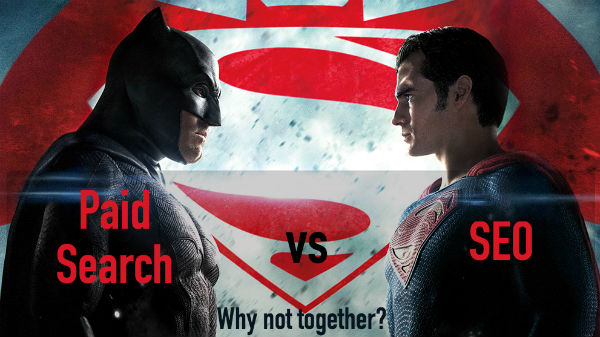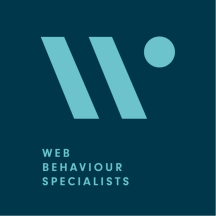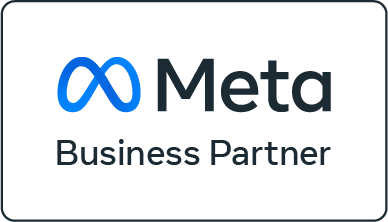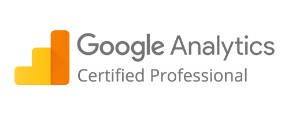
Maybe we could talk about SEO vs PPC like Superman vs Batman. Search Engine Optimisation and Paid Search are sometimes seen as separate strategies, even as alternatives. Both concepts often drive to the never-ending discussion about which one is more worthwhile for a business. And the truth is that it’s shocking to see how many enterprises, and even some medium and big sized digital agencies have the SEO and PPC teams separated, sometimes isolated from each other.
Based in our experience we could say (being very brave, by the way), that a good SEO strategy would bring more traffic with a lower cost per conversion/lead. But it’s usually a matter of having the necessary resources and the right implication from all the agents: the advertisers, the Marketing team or even others. Then, gathering all the success factors will be achievable.
However, the market changes and in every sector and every niche, competition is different… and when you are a new company, SEO could be too slow and paid search may be the right strategy to get fast visibility.
At the end of the day, it’s essential to know your target audience and how they behave. Then, a proper Digital Marketing Strategy will help you know which strategy is the right one for you, whether it’s SEO, PPC or a combination of the two.
So, there isn’t a correct general answer, but a tailored one for every specific situation.
Let’s try to go through this in detail.
SEO or how to rank organically in Google
Or Bing. To rank organically is all about being visible in a search engine without paid ads, like Google. You won’t pay for your visibility and traffic from search engines. Then, it will be that search engine that shows your website, depending on how relevant you are for a specific query. (Roughly explained)
However, although you won’t pay to the Search engine, SEO is not free, even if you know how to do it. Your time does cost money, and SEO is usually pretty time consuming.
Let’s see why you may want to work on an SEO strategy instead of PPC.
6 Key benefits of SEO vs PPC
Long-term higher ROI
To rank high organically needs time and as we saw, it’s not easy. However, once you reach a certain level, it theoretically would only need some regular maintenance and optimisation.
Besides, as we saw, you do not have to pay to be shown on the search engine.
This benefit is bigger when it is about high traffic Keywords, usually very expensive and competitive in paid search.
Targeting all of the funnels
KWs related to the top stages of the conversion funnel are, on one hand, sometimes long tail, not easy to target accurately in PPC due to low search volumes. AdWords don’t let you work with low search volume KWs.
On the other hand, these terms could be too generic, like “trainers”, and you need a big budget to target such a searchable and non-converting intended KW on Paid Search.
Targeting every single keyword
There are some limitations in the keywords or ads in paid search. In many cases, AdWords simply do not allow due to reasons such as, for instance:
- Copyrighted terms
- Pharmacy terms
- Adult content
- Claims like “being the best at something”
- Words in CAPS
- Too many exclamation marks
- Non-standard characters
- Low traffic KWs (don’t work)
Sustainability
Your ads will remain after you stop your investment, and no temporal budget cut will stop your audience being able to find you.
Cost per click
As we saw, SEO is not free, but you won’t pay for every irrelevant and not profitable click or impression to your organic ad.
Nicer, credible and trustful
3-in-one. SEO is one of the less intrusive ways to reach your target audience. You will be there when your audience is looking for something you can provide, only because Google thinks you deserve it and you are relevant to the query.
Paid Search, or how to advertise on AdWords
(Or Bind Ads). Pay per click is simply this: you pay and you get clicks. You choose the KWs to target, write some copy, segment the scope and start being visible on a search engine. Unfortunately, it’s not this simple, but you can get a truly high ROI with a Paid Search campaign when done correctly.
When the list of benefits from an SEO campaign is so convincing, why would a business want to run a PPC campaign?
6 Key benefits of PPC vs SEO
Get your ads live quickly
If you want to advertise asap, PPC is your friend. Depending the complexity of the campaign, the set up could take some time, but as soon as you create your campaign and put it live, you start advertising in a matter of hours, though proper optimisation could take some weeks. In the same way, you can get your modifications and optimisations live almost instantly.
Agile
You can easily show ads with special promotions, launches, events… or test new products or specific markets.
Enhanced Ads
The ads can be enriched with “ad extensions” so they stand out on the search pages. Phone number (clickable on mobile), location, schedule, callouts, reviews, ratings, links to specific parts of the site… all much easier and faster than with organic results.


Total control (almost)
In “organic” you can optimise your webpage to customise your search results, but the search engine will have the last word on deciding how to show them. However, in PPC the ads will be shown almost exactly the way you want them to be shown, for the exact KWs you want and linking straight to your preferred, specific landing page. In addition, you can target specific locations, audiences, time and date, language…
Visibility
If the ads are displayed on the top of the page, although the user can scroll down, they’re more likely to be seen (and maybe clicked). Furthermore, the space in the search results for paid ads is rising (now 4 ads) and, mainly on mobile, can get a higher CTR.
Testing and measuring
PPC offers a powerful tool for a/b testing with ad copies, calls to action, landing pages… As well as that, you can easily see which KWs are driving you the best results. For example, in the picture, you may want to use the first ad copy with high CTR from PPC to your organic results.

Does SEO affect Paid Search?
Despite the fact both channels are independent from each other, SEO could influence PPC more than it would initially seem.
With Google AdWords, there is something really important called “Quality Score”. QS is Google’s rating of the quality and relevance of both your keywords and PPC ads. This metric is used to determine your cost per click (CPC) and multiplied by your maximum bid to determine your ad rank in the ad auction process.
It depends on certain factors, such as your click-through rate, the relevance between KWs, ad copy and landing page… and the landing page experience.
This is when you really need a nice SEO job to optimise your landing pages for the targeted KWs and to make these pages easy to navigate, relevant and fast.
Does PPC affect SEO?
Although PPC campaigns won’t affect directly organic rankings (it is not a ranking factor at all), it may slightly improve the organic performance.
- If you are paying to drive people to relevant and interesting content, you may earn a link to your website that would help your KWs ranking and drive more traffic.
- You can benefit from the insights taken from your PPC campaigns to improve your SEO.
- If you run campaigns on TV, radio, public transport or AdWords, the brand awareness and traffic rises and this may affect the CTR for even non-branded queries because of brand recognition.
Here we can see the parallels between Paid traffic (1st snapshot) and the overall organic CTR (2nd snapshot).

We see how the visibility achieved by the AdWords campaigns may have been influencing organic CTR, with quite a flat average position in Google (which means there hasn’t been SEO optimisation on the site).
Curiously, at least, here the organic traffic drops slightly after pausing the AdWords campaigns.

Some possible explanations could be:
- When you are raising brand awareness, it may impact positively on organic traffic.
- Given a query, although the users may scroll down and miss your paid ad, they could have seen your brand name, even subconsciously.
- Some recurrent users looking for your brand/products/services may click on your organic results instead of the paid ads.
The benefits of SEO and PPC campaigns running together
After all the previous content about SEO vs Paid Search, you might have spotted that they are not rivals at all. The truth is that when both strategies are aligned, they are highly beneficial for your overall ROI.
Both strategies have their pros and cons, and sometimes a “con” of one of them can be fixed by a “pro” of the other.
Here you have a summary and addition of the benefits of running SEO and PPC campaigns collaboratively:
- Raise your brand awareness and trust
- Feedback between both strategies’ data, in terms of CTR, conversions, KW’s performance, new KWs, copies, CTAs… even audiences.
- Get an overall increase in traffic by running both strategies at the same time for the best performing KWs
- Dominate the search engine results (SERPS) – get higher visibility mainly for brand terms
- Keep standing out when the organic rankings fluctuate
- Get a higher overall CTR
- Have an organic alternative for expensive KWs for Paid Search
- Stand out and get noticed quickly with PPC when your SEO strategy is starting
- Do A/B testing and experiments in paid to be extrapolated to SEO
- Test the performance of KWs in Paid before developing long-term SEO campaigns.
- Reach every stage of your user’s conversion funnel
- Improve the Quality Score for your paid KWs by SEOing your landing pages
- Combat negative publicity
- Reach your organic visitors with paid retargeting (remarketing in AdWords)
Conclusions
For certain types of business, either Paid Search or Organic strategies might be enough. However, it is pretty clear that PPC and SEO are complementary channels and definitely can benefit each other if we take benefit from their synergy. Then, our marketing campaigns would become more effective and even more efficient. Just imagine a world where Superman and Batman work collaboratively against evil…








